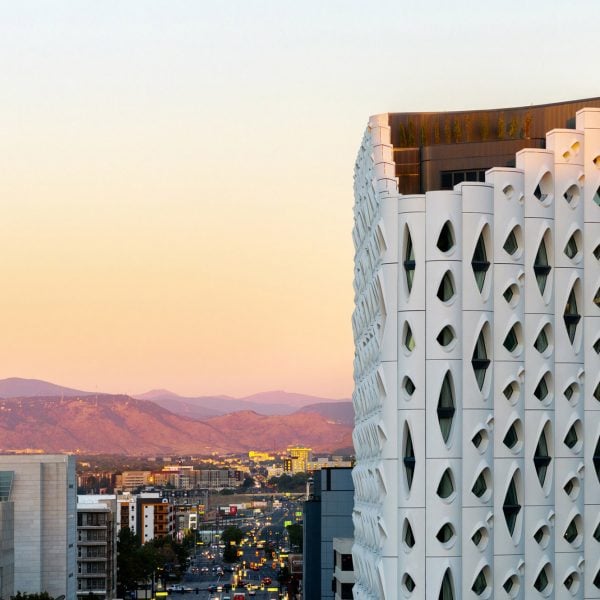Architecture practice Studio Gang has completed the Populus hotel in Denver, which the studio claims is the “first carbon-positive hotel” in the US.
Located in downtown Denver, the 13-storey hotel has a distinct facade with elliptical windows of varying sizes, designed to reflect the “Aspen eyes” of Colorado’s native Aspen tree, also known as Populus Tremuloides.
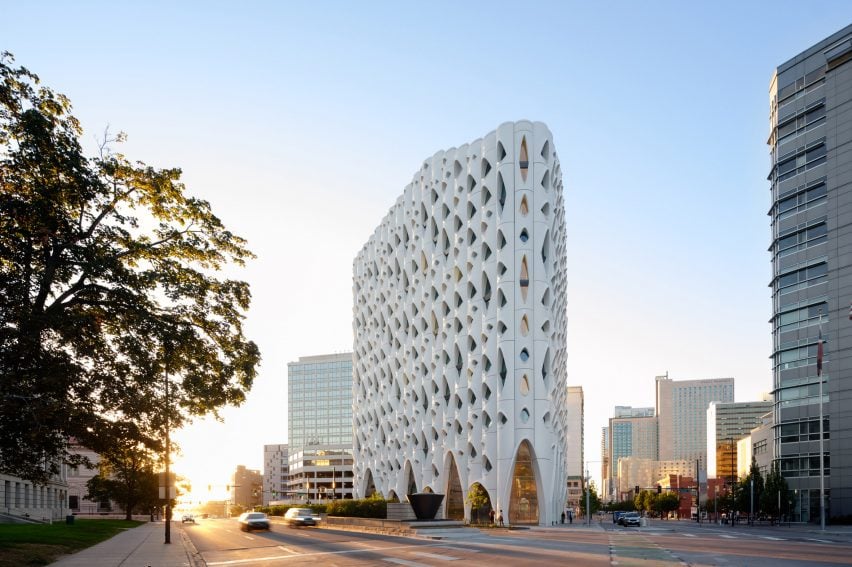
“Denver strikes a unique balance between being a vibrant city and a gateway to some of the country’s most awe-inspiring natural landscapes,” said Studio Gang founding partner Jeanne Gang.
“Our goal was to draw from this distinct urban character and rich ecology to create a building that would help define the skyline of this thriving city.”
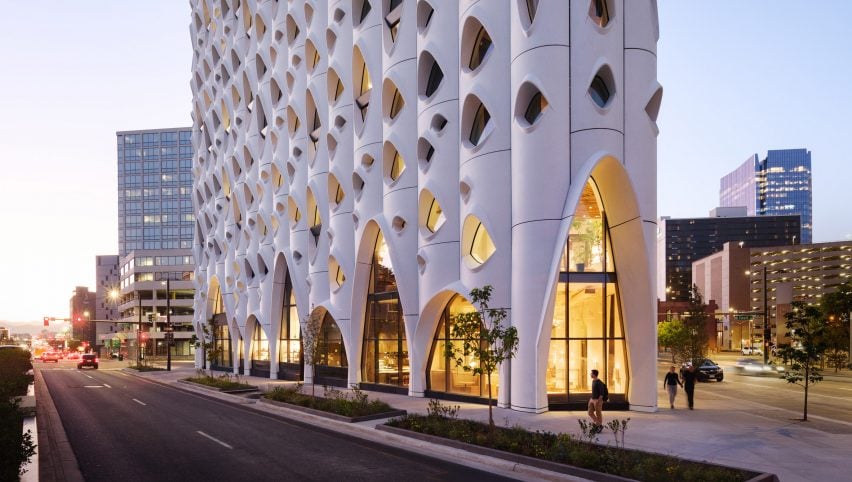
Triangular in form, Populus contains 265 guestrooms, event and public spaces and a 135,000-square-foot (12,542-square-metre) rooftop garden.
Studio Gang’s design includes several techniques to reduce energy usage including the green roof and “lids” that protrude over the windows to shade the interior.
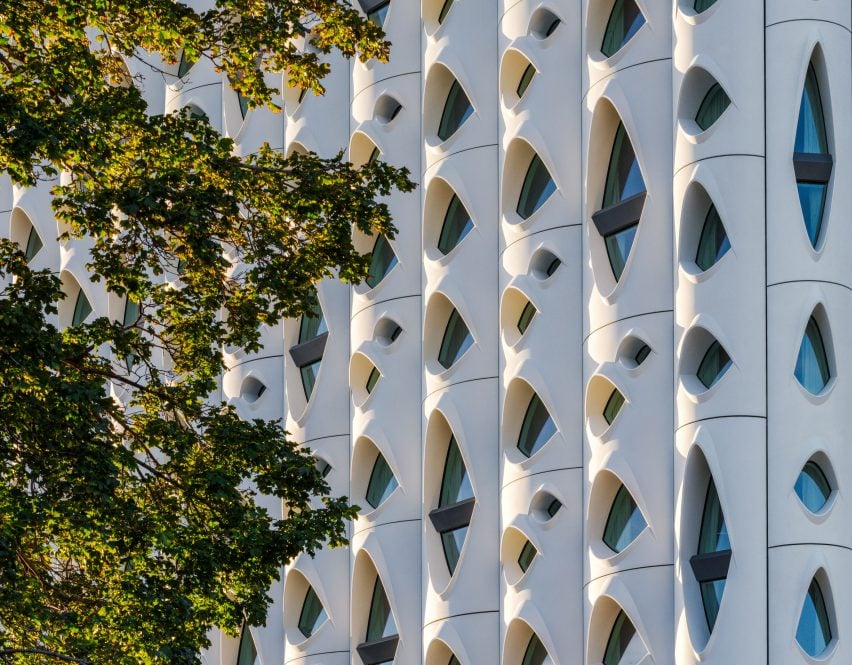
The hotel’s facade was made using a low-carbon concrete mix that produces 30 per cent lower emissions than standard concrete.
Its final embodied carbon footprint, including the “creation, transportation, installation, maintenance, and disposal of materials” was reduced to 6,675 metric tons carbon dioxide equivalent (CO2e), according to the team.
Developer Urban Villages offset these emissions by acquiring 7,000 metric tons worth of carbon credits.
The company said it partnered with organizations including Grassroots Carbon, OneTreePlanted and Terrapass to “acquire a balanced mix of high integrity, certified forest and soil carbon credits” and the US Forest Service, through which it planted 70,000 trees.
By offsetting more than the hotel’s embodied carbon footprint, Studio Gang claims that this makes Populus “the country’s first carbon-positive hotel”.
“Populus goes beyond net zero to help the planet regenerate and thrive,” said Studio Gang.
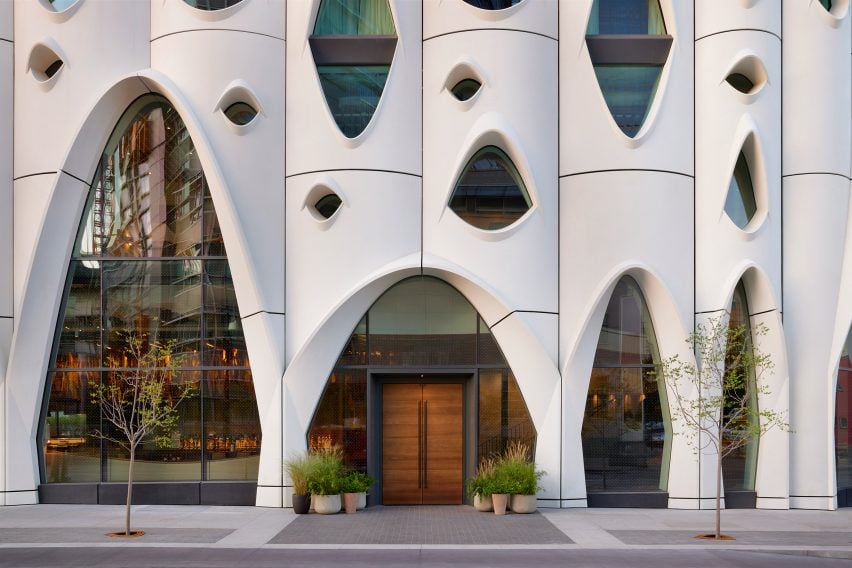
“Already, the hotel’s embodied carbon footprint has been reduced through a combination of sustainable design and construction techniques – including the use of low-carbon concrete, an insulated facade system and glass-fibre reinforced concrete rainscreen and intentionally not having onsite parking,” the team explained.
However, this equation does not consider the hotel’s operational emissions, meaning the considerable energy needed to heat, cool and power the building over its lifetime.
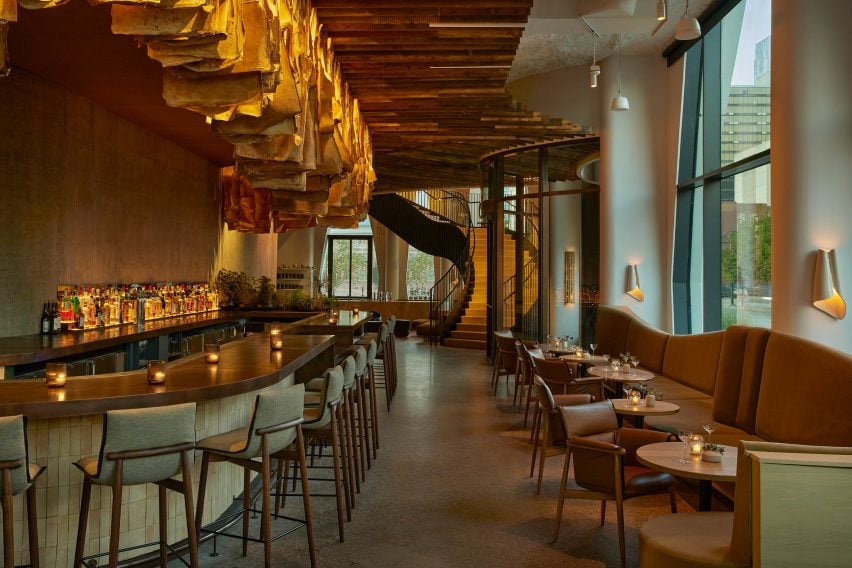
The project is also targeting LEED Gold Certified certification.
While some of the interior structure was left exposed to reduce the need for cladding, “highly recycled” materials were used elsewhere including reclaimed Wyoming snow fencing, recycled leather veneer and reclaimed wood.
The interiors by Pennsylvania studio Wildman Chalmers Design also pay homage to the Mountain West region and display a warm natural palette.
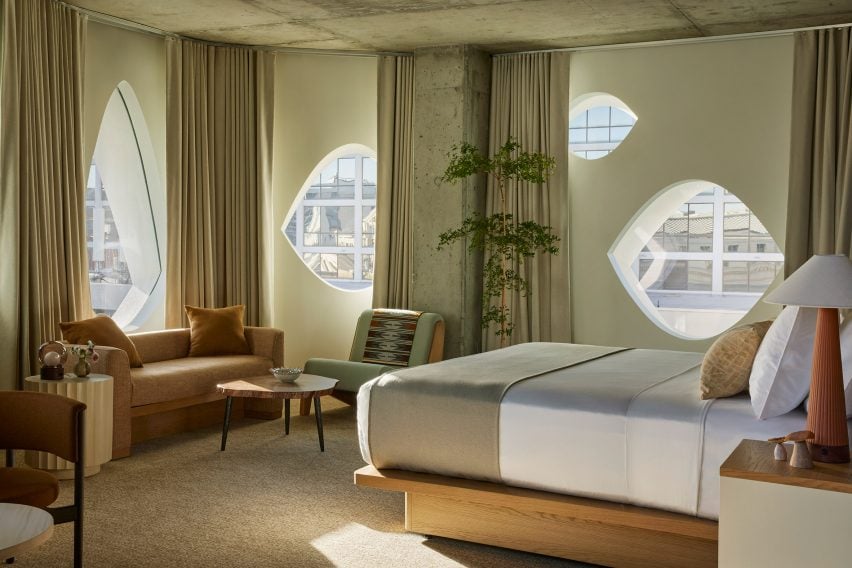
Populus forms part of a wider redevelopment of Denver’s downtown area led by Studio Gang, which will also see the studio make improvements to a local park.
Elsewhere in Denver, MAD Architects recently completed a residential building with a “crack” down the centre.
The photography is by Jason O’Rear unless otherwise stated
Project credits:
Developer: Urban Villages
Management: Aparium Hotel Group
Design architect: Studio Gang
Interior designer: Wildman Chalmers Design
Interior architects of record: Fowler Architecture and Design
Art curator: Katherine Homes
Contractor: The Beck Group
Landscape architect: Superbloom

